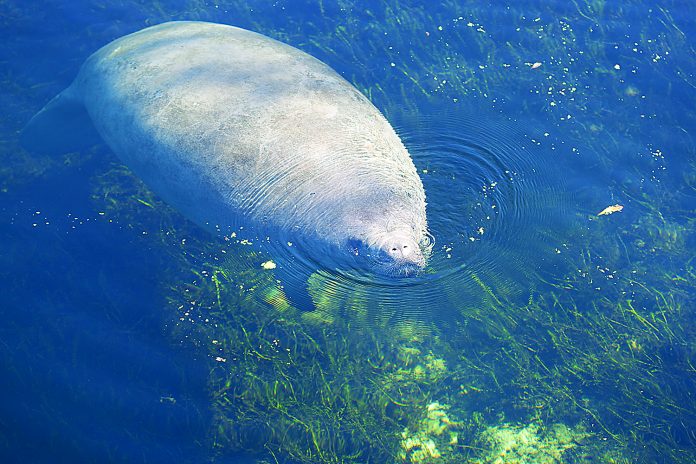
This November, celebrate Manatee Awareness Month with Save the Manatee Club (SMC) by learning more about manatees and how to help protect them and their habitat. SMC will be sharing manatee activities, games, quizzes, and ways the public can help manatees throughout the month on social media and at savethemanatee.org/MAM beginning in November. Each week will have a different theme, from fun facts to taking action.
The month-long recognition of imperiled manatees was first declared in 1979 by Former Florida Governor Bob Graham, who co-founded Save the Manatee Club along with singer-songwriter Jimmy Buffett.
Florida began designating manatee protection zones in the late 1970s in order to conserve the warm-water areas that manatees need to survive the winter as well as encourage slower boating speeds in areas where manatees frequent. In November, manatees usually begin returning to Florida’s warm waters.
They need the constant warmth from natural springs or power plant effluents once the water temperature begins dipping below 68° F (20° C). Manatees remain near these sites until about March. Despite their size, manatees have relatively little body fat and cannot survive with prolonged exposure to cold water temperatures.
Floridians and those who visit Florida during the winter can learn how to recognize sick, injured, or orphaned manatees so they can report them to the Florida Fish and Wildlife Conservation Commission (FWC).
“Boaters, especially, can be a tremendous help in reporting manatees in distress,” says Patrick Rose, Save the Manatee Club’s Aquatic Biologist and Executive Director. “Being aware of manatees’ presence on the water, and learning how to call when something is wrong, can help save a manatee’s life.”
Most adult manatees bear scars on their bodies from collisions with watercraft. When healed, the scars appear gray or white. But when fresh, they can look pink or red with deep cuts. That’s when a manatee should be reported. Manatees that are seen tilting to one side, unable to fully submerge underwater, or having trouble breathing should also be reported.
As a result of the severe losses of seagrass on the east coast of Florida, it is more important than ever to watch for manatees that appear malnourished, with visible ribs and a sunken area behind their head. A manatee calf by itself with no adults around may be an orphan and should be reported.
Anyone who spends time near the water should view the resources at savethemanatee.org/rescue at least every November. Boaters can also request free materials such as boat decals displaying the FWC’s 24/7 wildlife alert hotline, 1-888-404-FWCC (3922).
Save the Manatee Club also offers educational resources to increase manatee awareness for manatee-lovers of any age, including important facts and FAQs, manatee videos and live webcams.
Additionally, SMC can provide live virtual presentations about manatees for classrooms or other groups upon request.
“Education is one of the primary objectives in achieving our mission of manatee protection,” says Rose. “Whether for boaters in Florida or students all around the country, learning about and appreciating manatees plays an important role in helping to protect them and their essential habitat.”
– Save The Manatee Club Director of Communications and Outreach Ally Greco
Do you have an effort to get grocery stores to donate lettuce and other things that they throw out for spoilage?